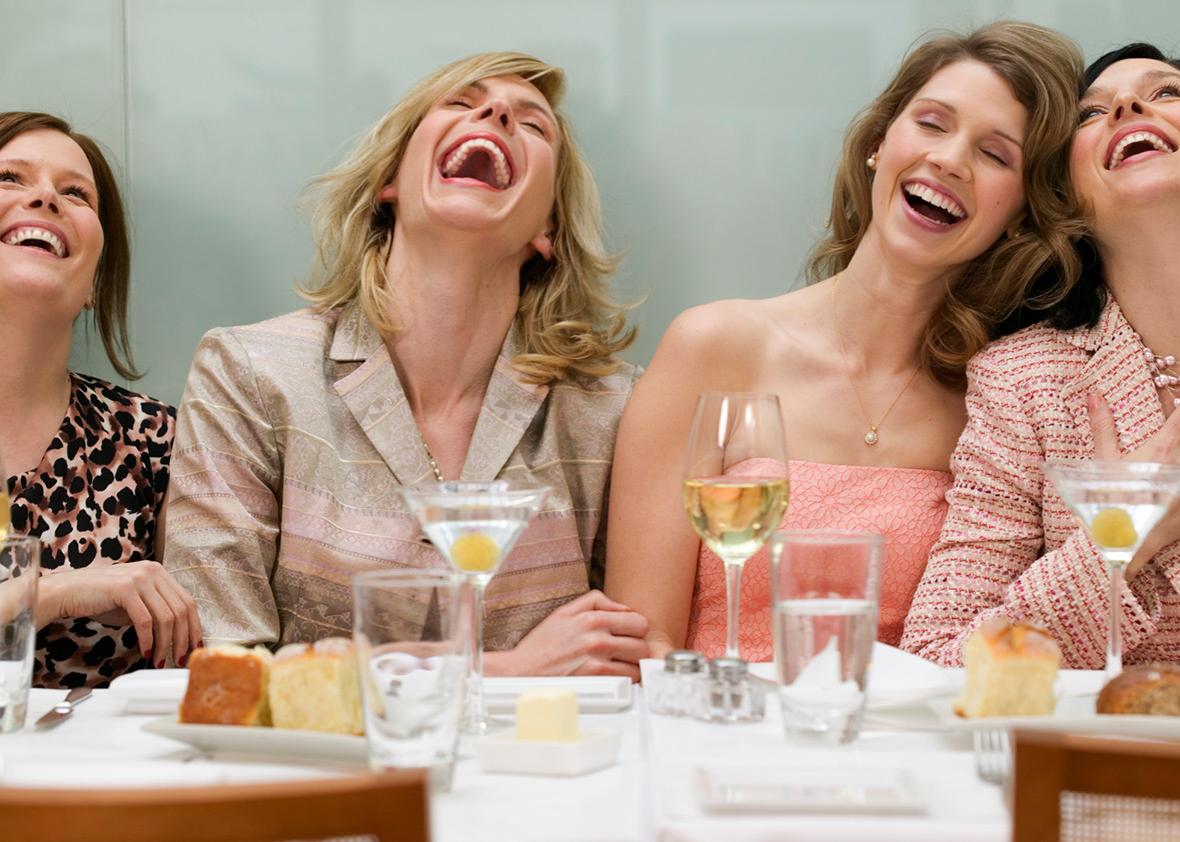Patriarchy explains a lot about our world. That belief is pretty much the juice that powers a blog like this one. Most Double X stories wouldn’t make sense to aliens from a planet without sexism. Wait, what? those extraterrestrials might say. Why do female humans get paid less than male ones? Why are they always getting criticized for the way they talk? Why do the strongest and fastest among them need to wear make-up and “look beautiful” to compete in the Olympic Games?
One puzzle that patriarchy doesn’t do much to solve, however, is why people, including women, consume so much of an organic compound called ethanol, also known as booze. And yet, “women drink because patriarchy” is more or less the argument of a viral essay, first published on Medium and then picked up by Quartz, that made the rounds of the internet on Monday.
When the essay’s author, Kristi Coulter, gives up drinking, she realizes that she was using alcohol to insulate herself not from life in general, but from the specific pressure to be what she calls a “24-hour woman,” more commonly (and tritely) known as “a woman who has it all.” “[T]here’s no easy way to be a woman, because, as you may have noticed, there’s no acceptable way to be a woman,” she writes. “And if there’s no acceptable way to be the thing you are, then maybe you drink a little. Or a lot.” As her presumptuous second person suggests, this piece is Coulter’s attempt to enlighten all us ladies about why we’re such lushes, too.
A few things turned me off from the get-go. First, in Coulter’s version of the modern metropolis, there appears to be no such thing as a woman who doesn’t hit the bottle too hard. “[T]o be a modern, urbane woman means to be a serious drinker,” she writes. But not all modern, urbane women are women like Coulter—well-remunerated professionals who like high heels and farmers’ markets and Ubering home from the tapas bar—and even within that subculture, she could surely find some nondrinkers, and some moderate drinkers, without too extensive a search.
The other reality, of course, is that many men also spend their free time floating away from their problems on a river of booze. They don’t strike me as participants in an unrelated phenomenon. In fact, I wonder if Coulter’s essay is so popular because she’s captured a basically gender-neutral sense of exhaustion—with the way we live, and with alcohol, a salve that usually further depletes us. As a 2015 piece in Self pointed out, both men and women who work upwards of 49 hours a week are more likely to binge drink than their counterparts who work 35 to 40 hours a week, and women who make upwards of $60,000 per year are more likely to drink than those who make less.
In my favorite passage of the essay, a newly sober Coulter notices that, wherever a modern and urbane individual may go to unwind from stresses personal and professional—be it a cooking class, a yoga studio, or a half-marathon—she (or he) will inevitably be offered a drink:
[K]nives and booze, yoga and booze, 13 mile runs and booze? What’s next to be liquored up: CPR training? Puppy ballet class? (Not really a thing, but someone should get on it.) Is there nothing so inherently absorbing or high-stakes or pleasurable that we won’t try to alter our natural response to it?
Coulter poses a very good question. But I’m not so taken with her answer: “Maybe women are so busy faking it — to be more like a man at work, more like a porn star in bed, more like 30 at 50 — that we don’t trust our natural responses anymore. Maybe all that wine is an Instagram filter for our own lives, so we don’t see how sallow and cracked they’ve become.” Instead, I’d propose that the simplest answer is probably the best—that, as the most overworked and overstressed denizens of the developed world, trapped in a cycle of expectations that requires us to take less vacation with every passing year, Americans have resorted to making our free-time feel artificially longer and more liberating, and to pretending that Monday is farther away than we, sadly, know it to be. In lieu of a time-turner, we drink.
Coulter’s not wrong to point out that women face particular pressures, and that gender inequality is often to blame: Her essay is peppered with condemnations of unfair beauty standards, and it hinges on a scene in which male coworkers undercut her authority during a public panel. But if these are the frustrations and humiliations some women hope to wash away with a fourth artisanal cocktail, for other women, they’re low on the list of reasons to drink. I take to heart Coulter’s exhortation to stop drowning our problems in so much #wine, but if we were to try to explain this strange earthling ritual to our alien guests, I think the angst of being human, not the trouble with being female, would be the natural place to start.
